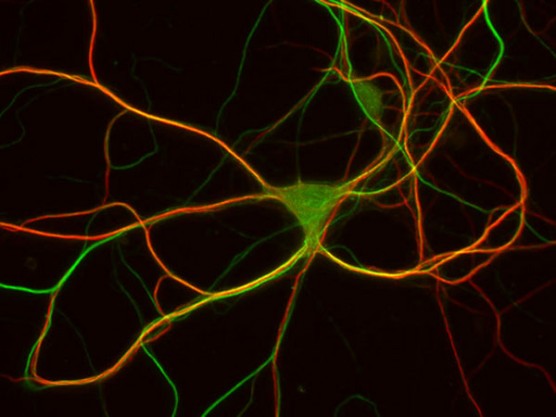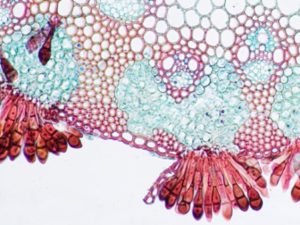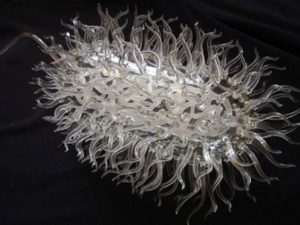Intelligence Design

This is a pyramidal neuron from the hippocampus, a part of the brain where some kinds of memories are formed. This neuron has been labeled with fluorescent antibodies so that we can visualize microtubules (shown in green), which form a structural network inside the neuron, and insulin receptors (shown in red), which are cell surface proteins that instruct neurons to make connections with other neurons. These connections, called synapses, become stronger or weaker as memories are constructed.
Lisa Boulanger is an assistant professor of molecular biology at Princeton University and the Princeton Neuroscience Institute. Her work focuses on how proteins of the immune system participate in normal brain development and synaptic plasticity. Of particular interest are members of the major histocompatibility complex (MHC) class I, a family of proteins that allow T cells to recognize and destroy infected or cancerous cells. Boulanger’s recent work has shown that these immune system proteins are also unexpectedly required for normal brain development as well as adult learning and memory. These studies suggest ways that the immune system could play an unexpected part in neurodevelopmental and neurodegenerative disorders, including schizophrenia, autism, and Alzheimer’s. For more information about Boulanger’s work , click here.






